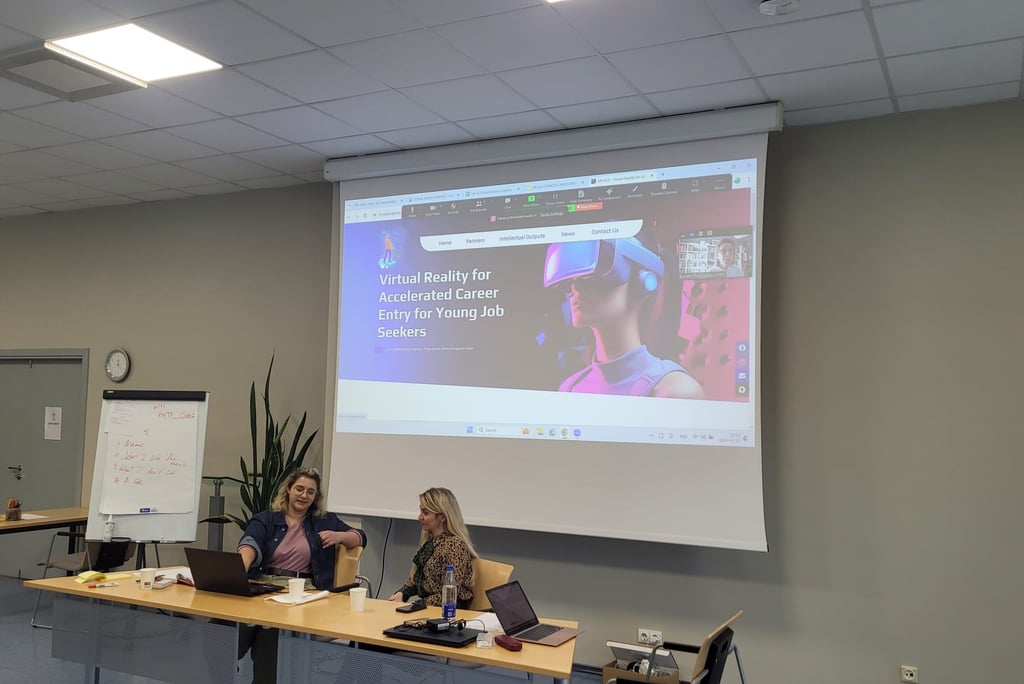


The VR-ACE project aims to address the problems faced by young people trying to enter the labour market, in particular their failure to participate in job interviews.
The project is developing training tools – a digital guide and virtual reality (VR) scenarios – aimed at strengthening young job seekers' skills in applying for jobs and successfully participating in job interviews, improving their cross-sectoral skills and thus increasing their chances of employment.








Help young job seekers achieve paid employment. Provide them with the guidance, training and resources they need to gain the skills and knowledge needed to get the right job.
To equip young job seekers with the tools and resources they need to effectively present themselves during job interviews and stand out from the crowd.
The EU Skills Agenda emphasizes communication as one of the essential transversal skills that young job seekers need to acquire to demonstrate their professional abilities and succeed in the workplace.
Reducing youth unemployment is a priority that has been at the heart of EU policy for many years, especially after Covid 19, which has led to a rise in youth unemployment rates, reversing the gains made before the pandemic.
This will support some of the existing EU policies designed to address this issue, such as the EU Youth Employment Initiative, which aims to help young people access job opportunities.
Promote the development of the skills of youth workers so that they can effectively help young people prepare for the labour market.
















2023-1-LT02-KA220-YOU-000152550




















